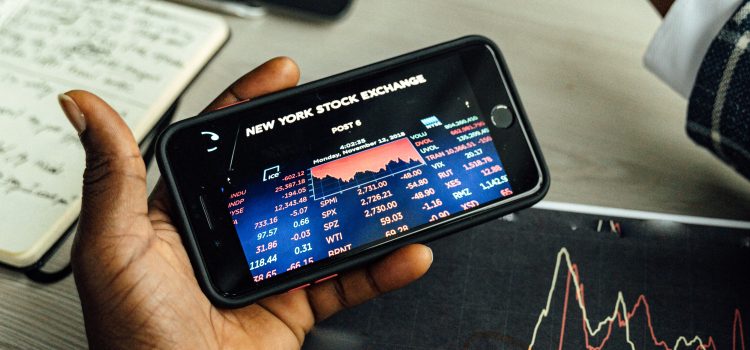
Forex (foreign exchange) trading involves the exchange of one currency for another and is the largest financial market in the world, with a daily trading volume exceeding $6 trillion. Effective forex asset management is crucial for investors aiming to maximize returns while mitigating risks. This article explores various strategies for successful forex asset management, providing insights into market analysis, risk management, trading psychology, and the importance of having a diversified portfolio.
Understanding Forex Market Dynamics

Market Participants
The forex market comprises diverse participants, including central banks, financial institutions, hedge funds, corporations, and retail traders. Each participant plays a unique role, influencing market trends and liquidity. Understanding these roles can help traders predict market movements and identify profitable opportunities.
Currency Pairs and Volatility
Forex trading involves pairs of currencies, where the value of one currency is measured against another. Major pairs like EUR/USD, GBP/USD, and USD/JPY are highly liquid and exhibit predictable volatility patterns. Cross pairs and exotic pairs, however, can be more volatile and less liquid, requiring a deeper understanding and careful analysis.
Key Strategies for Forex Asset Management
Technical Analysis
Technical analysis involves studying past market data, primarily price and volume, to forecast future price movements. Common tools include:
- Moving Averages: Used to identify trends by smoothing out price data.
- Relative Strength Index (RSI): Measures the speed and change of price movements to identify overbought or oversold conditions.
- Fibonacci Retracement: Helps identify potential reversal levels by measuring price movements against Fibonacci levels.
Fundamental Analysis
Fundamental analysis examines economic, social, and political factors that affect currency prices. Key indicators include:
- Interest Rates: Higher interest rates attract foreign capital, increasing demand for a currency.
- Inflation Rates: Higher inflation typically depreciates a currency’s value.
- Economic Data Releases: GDP, employment figures, and retail sales data can significantly impact currency values.
Risk Management
Effective risk management is essential for long-term success in forex trading. Strategies include:
- Stop-Loss Orders: Automatically close a trade at a predetermined loss level to prevent excessive losses.
- Position Sizing: Determines the amount of capital to risk on each trade, typically a small percentage of the total account balance.
- Diversification: Spreading investments across different currency pairs to reduce exposure to any single pair’s volatility.
Trading Psychology
Emotional Discipline
Maintaining emotional discipline is critical in forex trading. Traders must manage emotions such as greed and fear, which can lead to impulsive decisions. Developing a trading plan and sticking to it, regardless of market conditions, helps maintain discipline.
Continuous Learning
The forex market is dynamic, requiring continuous learning and adaptation. Successful traders stay updated with market news, refine their strategies, and learn from past trades to improve their performance.
The Role of Technology in Forex Trading
Trading Platforms
Advanced trading platforms provide tools and features that enhance trading efficiency. Features include real-time quotes, advanced charting tools, and automated trading systems.
Automated Trading Systems
Automated trading systems, or forex robots, execute trades based on pre-set criteria. These systems can help traders execute strategies consistently and without emotional interference.
Case Studies: Successful Forex Asset Management
Case Study 1: George Soros
George Soros, one of the most famous forex traders, is known for his “breaking the Bank of England” trade in 1992. By shorting the British pound, Soros made a profit of over $1 billion. His success was attributed to his deep understanding of market fundamentals and timing.
Case Study 2: John R. Taylor Jr.
John R. Taylor Jr., a pioneer in the use of computer models for forex trading, founded FX Concepts, which became one of the largest currency hedge funds. Taylor’s success was driven by his innovative approach to technical analysis and risk management.
Comparative Analysis: Technical vs. Fundamental Analysis
Strengths and Weaknesses
| Strategy | Strengths | Weaknesses |
|---|---|---|
| Technical Analysis | – Identifies short-term trading opportunities | – May overlook long-term economic factors |
| – Uses historical data to forecast future movements | – Can be influenced by market noise | |
| – Provides clear entry and exit points | – Requires constant monitoring and adjustments | |
| Fundamental Analysis | – Considers broad economic indicators | – May not account for short-term price fluctuations |
| – Helps understand long-term trends | – Requires in-depth research and analysis | |
| – Can predict major market shifts | – Difficult to time the market based on fundamental data |
Analysis Table: Key Factors in Forex Asset Management
| Factor | Description | Impact on Trading |
|---|---|---|
| Market Participants | Central banks, financial institutions, hedge funds, etc. | Influence liquidity and market trends |
| Currency Pairs | Major, minor, and exotic pairs | Affect volatility and trading strategies |
| Technical Indicators | Moving averages, RSI, Fibonacci retracement | Provide insights into price trends and entry/exit points |
| Economic Indicators | Interest rates, inflation, GDP, employment figures | Drive long-term currency value changes |
| Risk Management | Stop-loss orders, position sizing, diversification | Protects capital and minimizes losses |
| Trading Psychology | Emotional discipline, continuous learning | Ensures consistent and rational trading decisions |
| Technology | Advanced trading platforms, automated trading systems | Enhances efficiency and execution of trading strategies |
Conclusion
Forex asset management requires a multifaceted approach that combines technical and fundamental analysis, effective risk management, and the use of advanced technology. Traders must maintain emotional discipline and continually update their knowledge to adapt to the ever-changing market conditions. By implementing these strategies, traders can enhance their chances of success in the competitive forex market.









